Abstract
Previous investigations had shown that resistance to standard regimens of chloroquine occurred in some cases of falciparum infection in the Philippines. More extensive investigations into this phenomenon were planned by the Malaria Eradication Service, by means of the in vitro technique developed by Rieckmann, in order to determine both the distribution of resistant strains throughout the country and their local incidence. Before these studies were undertaken, a series of observations were made on cases of falciparum malaria encountered in Manila and its environs, to assess the reaction of local strains of the parasite to the in vitro test. These cases were also treated with standard doses of chloroquine and some were followed up for 4 weeks to compare the predictions made as a result of the in vitro tests with the in vivo observations. Of the 34 in vitro tests carried out, 18 were followed up in vivo. In 8 cases, no recrudescence occurred, but in the other 10 recrudescences were detected during the 4-week observation period, thus indicating parasite resistance to the drug. In each of the 18 cases, the in vivo response followed the in vitro prediction.
Full text
PDF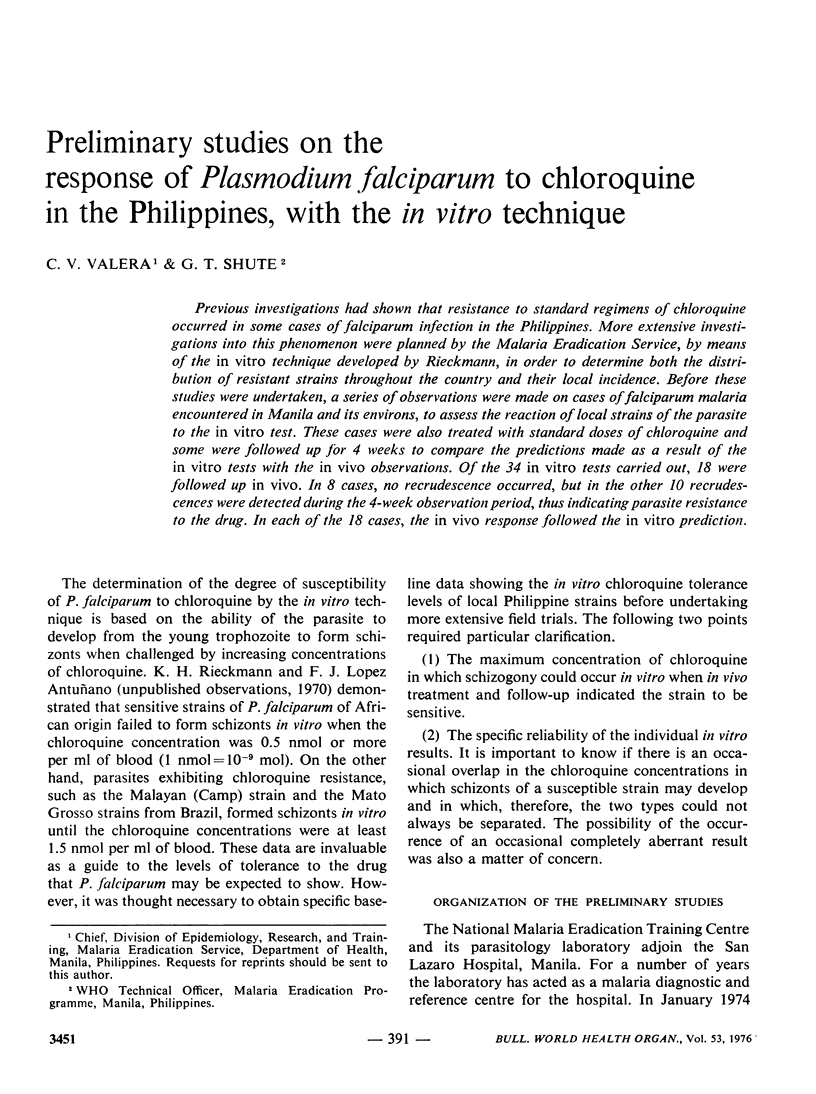
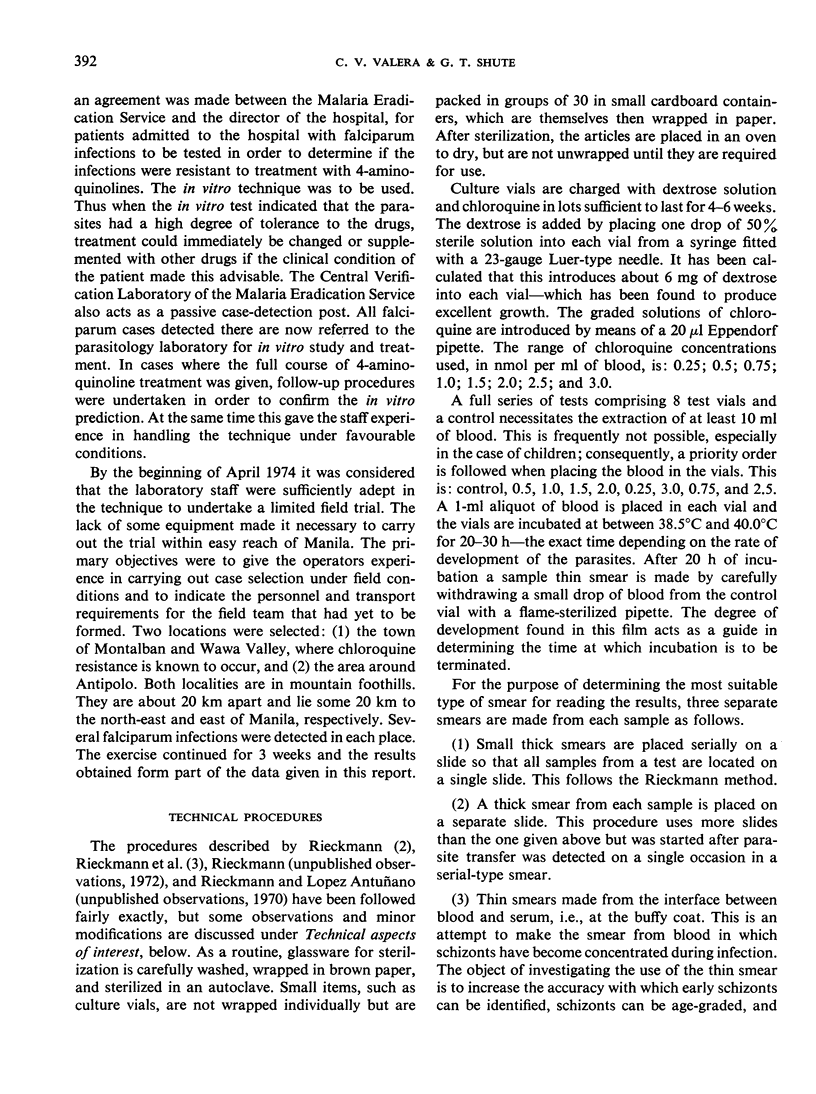
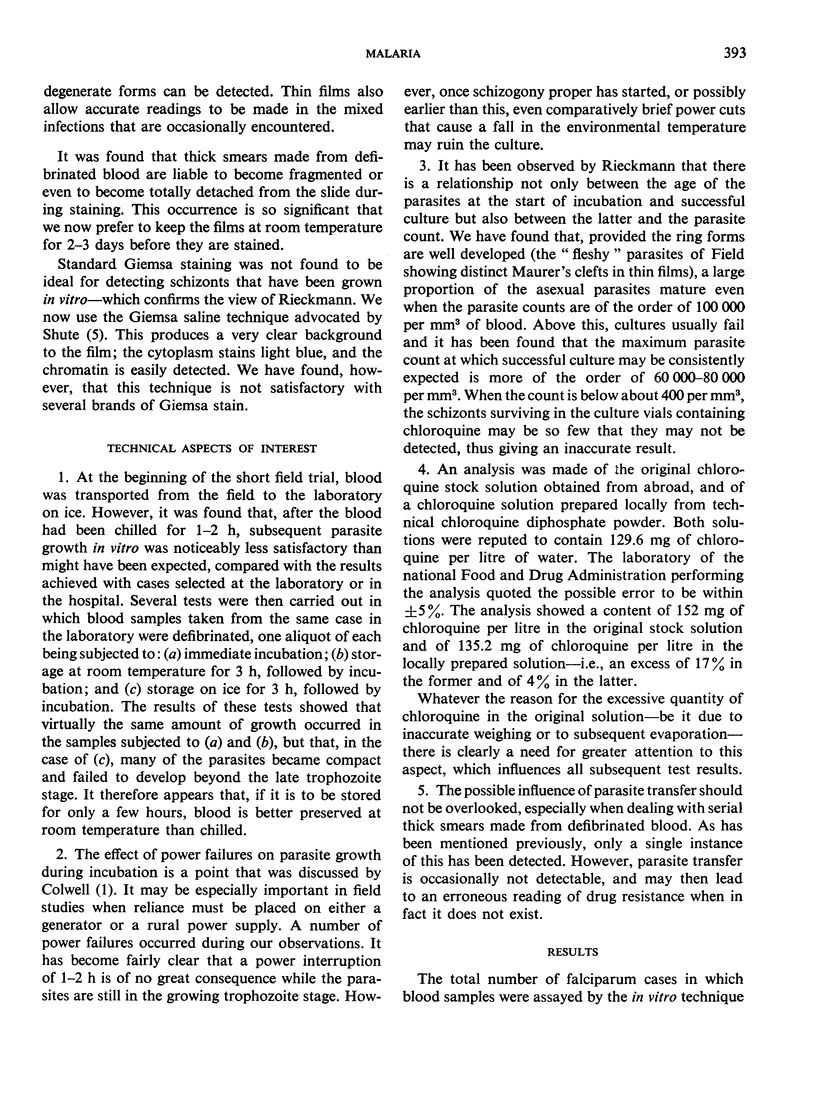
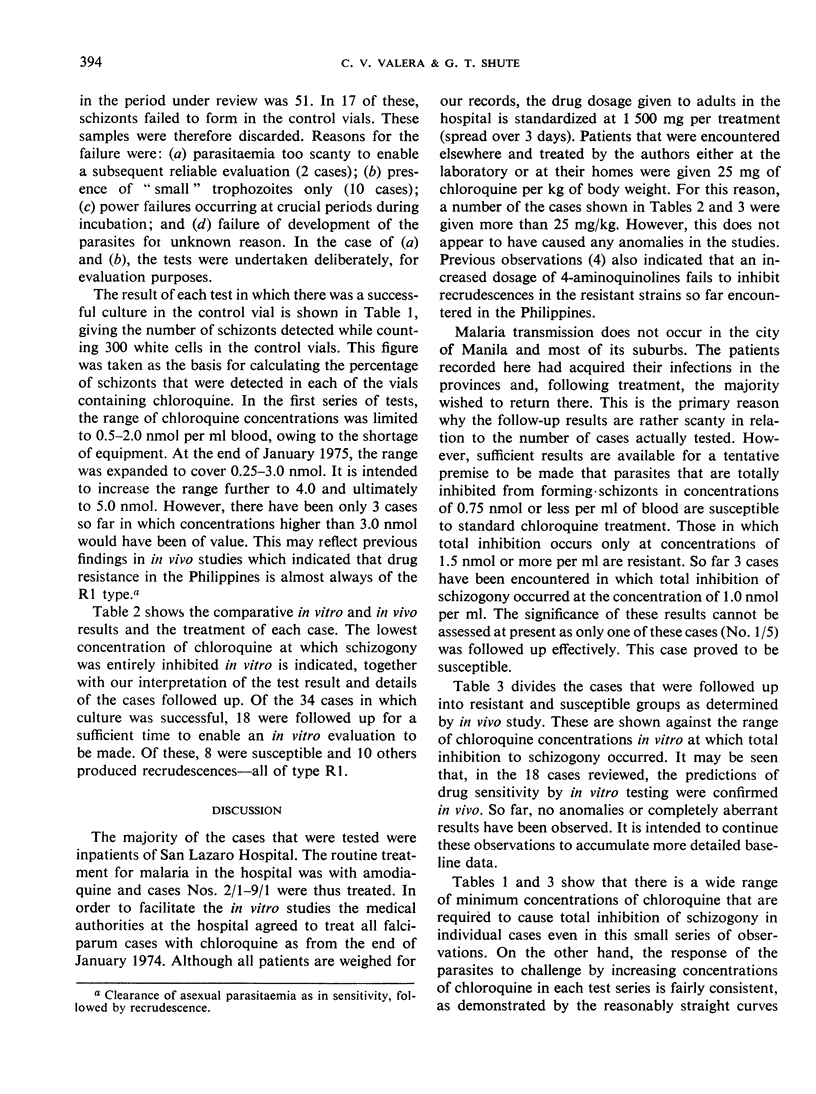
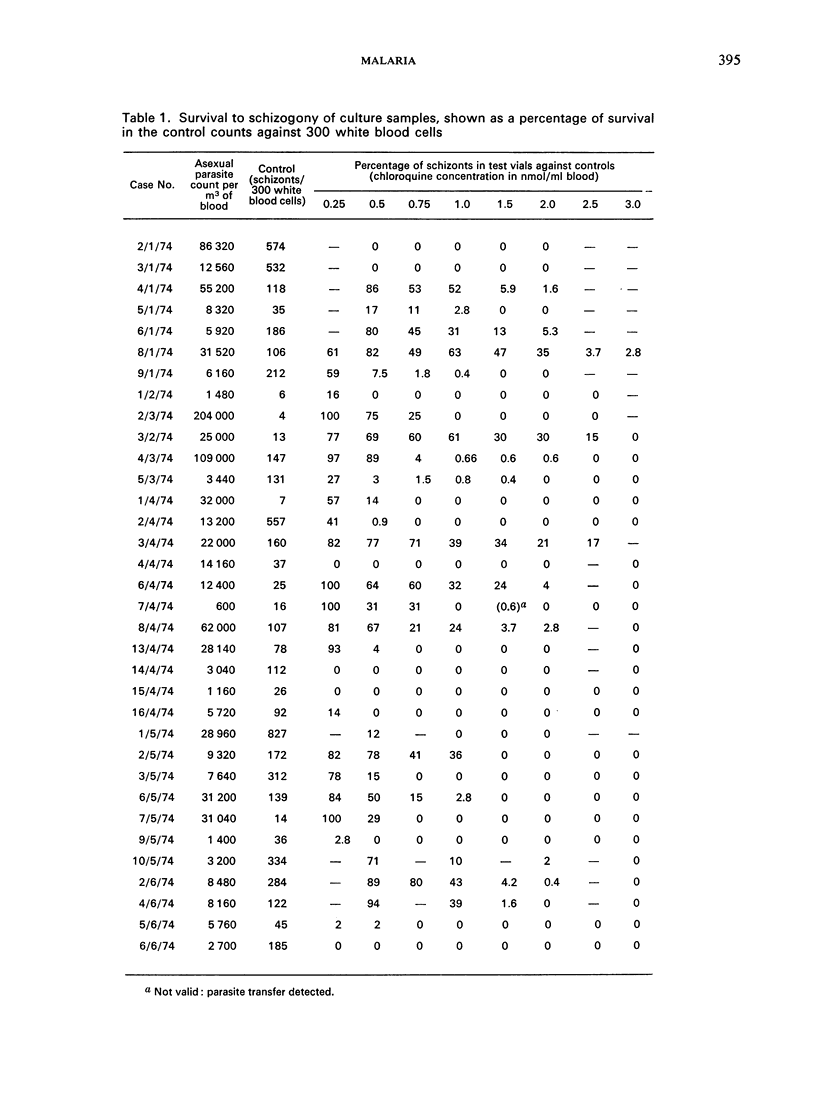
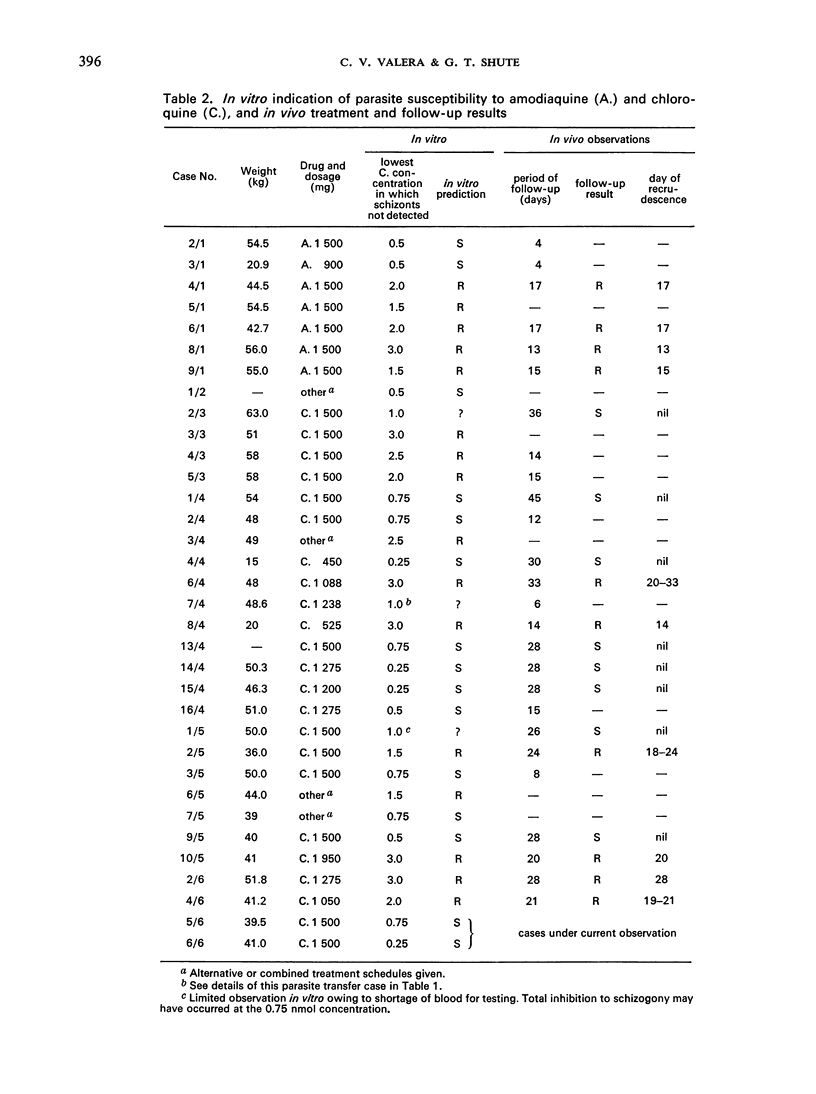
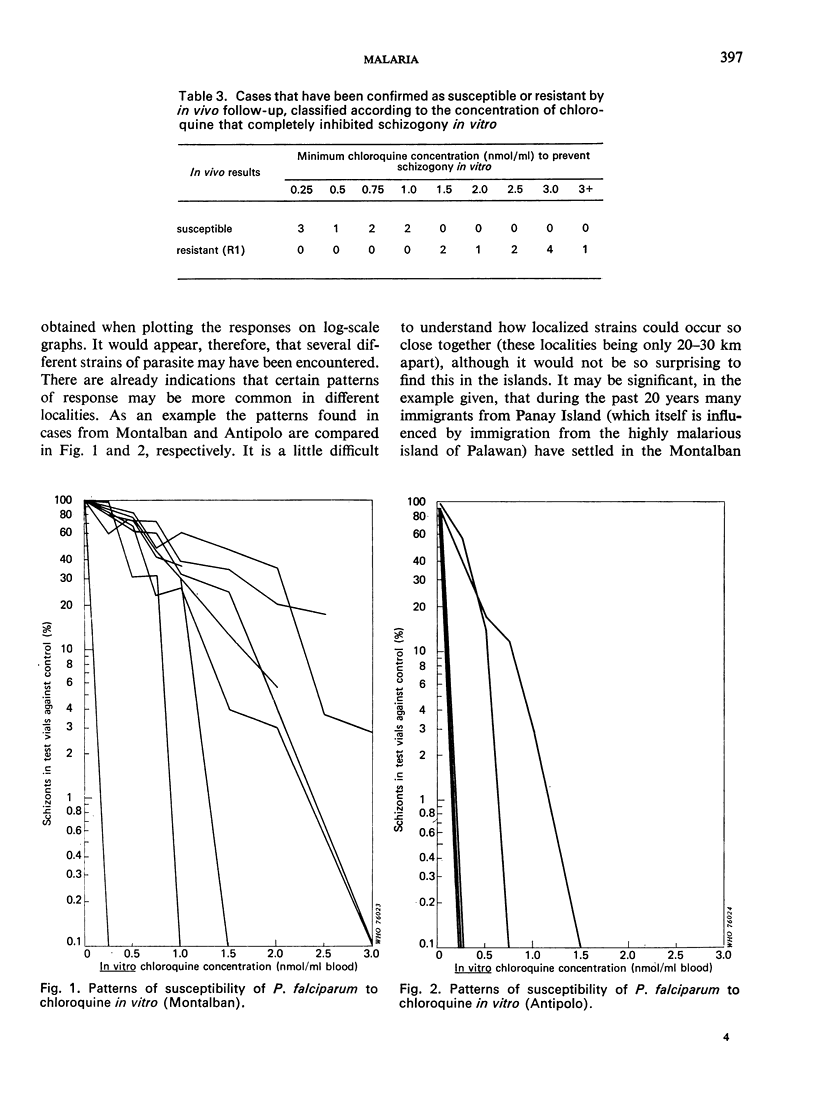
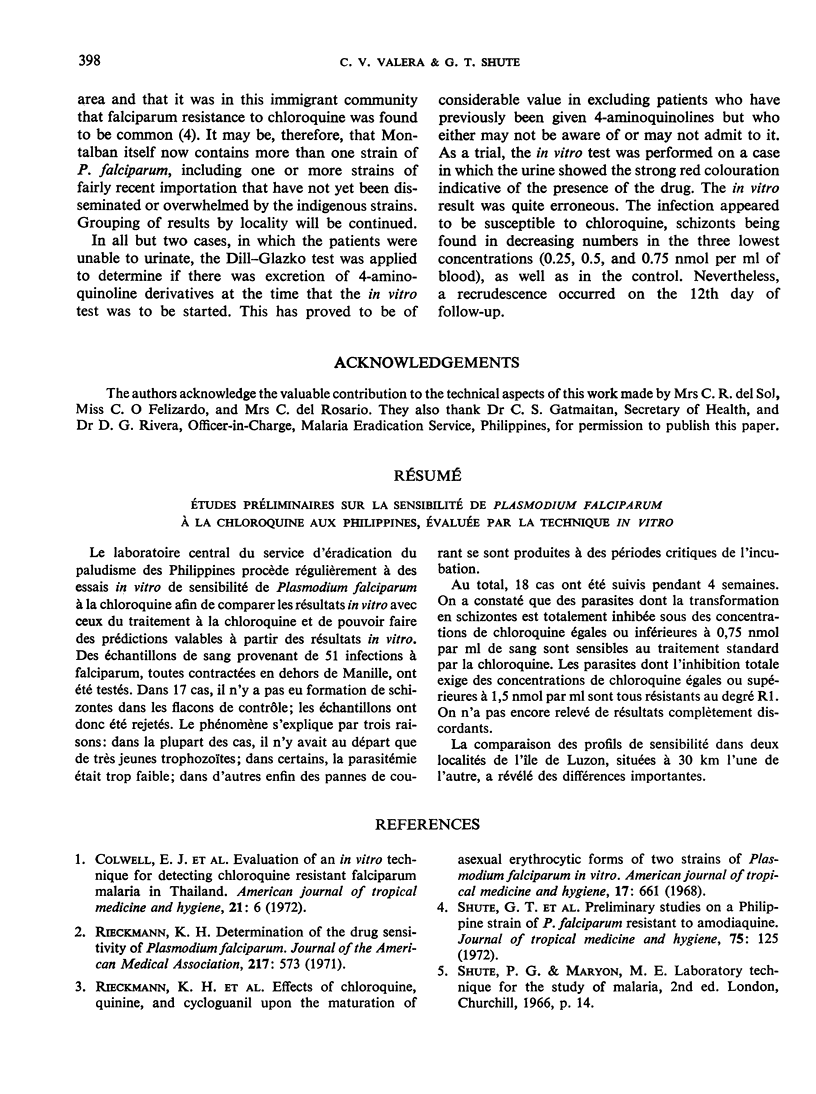
Selected References
These references are in PubMed. This may not be the complete list of references from this article.
- Rieckmann K. H., McNamara J. V., Frischer H., Stockert T. A., Carson P. E., Powell R. D. Effects of chloroquine, quinine, and cycloguanil upon the maturation of asexual erythrocytic forms of two strains of Plasmodium falciparum in vitro. Am J Trop Med Hyg. 1968 Sep;17(5):661–671. doi: 10.4269/ajtmh.1968.17.661. [DOI] [PubMed] [Google Scholar]
- Shute G. T., Ray A. P., Sangalang R. Preliminary studies on a Philippine strain of Plasmodium falciparum resistant to amodiaquine. J Trop Med Hyg. 1972 Jul;75(7):125–132. [PubMed] [Google Scholar]


